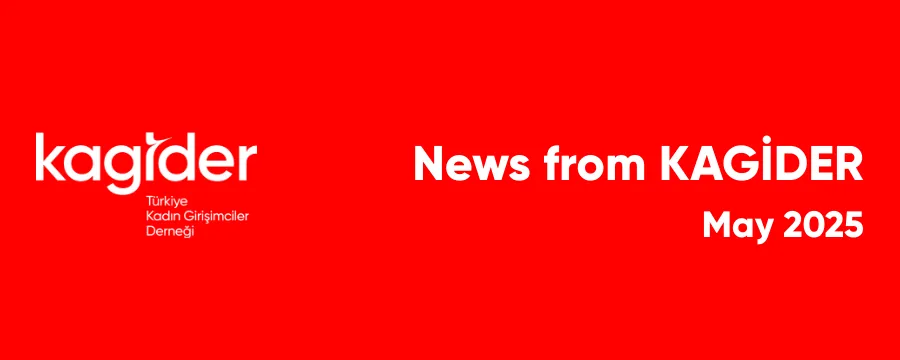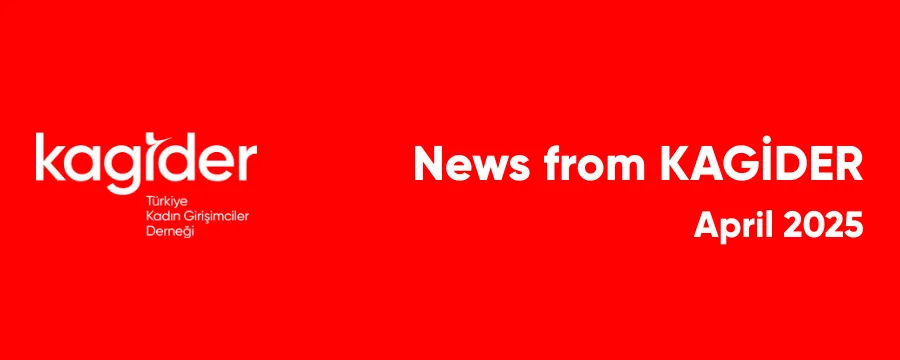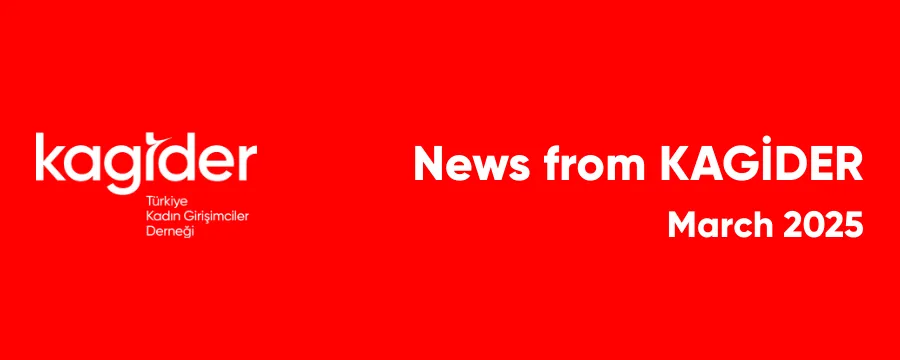KAGIDER Board Member Kıvılcım Pınar Kocabıyık wrote: COP28 Climate Summit: A Common Story of Humanity
I spent two weeks in Dubai for COP28. While it may not have made major headlines in Türkiye, the fate of the planet was once again the subject of intense negotiation in the United Arab Emirates’ most iconic city. Delegates from nearly 200 countries that are parties to the United Nations Framework Convention on Climate Change (UNFCCC) gathered for the 28th Conference of the Parties—COP28—to discuss critical measures to combat the climate crisis.
As we know, the main pillar in the fight against climate change is the reduction of greenhouse gas emissions, with the ultimate goal of achieving a carbon-neutral world by 2050. One of the core debates at COP28 was this: When and how quickly will we phase out fossil fuels? More than 100 countries pushed for the phrase “phase-out of fossil fuels” to be included in the final text. However, a powerful group—led by oil-exporting nations and their organization, OPEC—mounted significant opposition. As is often the case, the outcome was a compromise. The final declaration didn’t include a commitment to a phase-out, but it did manage to include a call to “transition away from fossil fuels.”
For some, this was a diplomatic win. For others, given the climate emergency we face, it was a limited and insufficient step forward.
The direction of the fight is clear. What remains uncertain is *how soon* we will act—and how much damage we will suffer in the meantime.
Another key issue at COP28 was support for the most climate-vulnerable countries—nations that are hit hardest by the crisis and lack the resources to recover. At COP27, after heavy debate, countries agreed to create a special Loss and Damage Fund. This year, at COP28, the fund was officially launched, with initial pledges totaling \$700 million. While this is symbolically important, it sadly represents less than 1% of the actual needs.
More than 100,000 people attended COP28, setting a record. The noticeable increase in attendance from countries facing the existential threat of losing their lands and homes due to climate change was encouraging. But even more noticeable—and concerning—was the number of fossil fuel lobbyists on site, who no doubt had a strong influence on the decisions that were (or were not) made.
It was surreal to be negotiating fossil fuel phase-outs in Dubai, a city built on fossil fuel wealth. Still, it’s important to recognize that the modest progress achieved was due to the pressure of global public opinion, civil society, and science.
At the Türkiye Pavilion, our organization Yuvam Dünya hosted an event focused on climate communication. One of the keynote speakers was Anthony Leiserowitz, Head of the Yale Program on Climate Change Communication. He shared a sobering fact from their latest global research: 4 out of 10 people worldwide—nearly 2 billion individuals—have never even heard of climate change.
These are often the most vulnerable populations. Leiserowitz stressed that raising awareness globally is crucial because many still perceive the climate crisis as a distant issue.
He reminded us that climate change is here, now, and happening everywhere. And he emphasized that effective communication isn’t just about the media: “We are all storytellers”, he said.
Indeed, the only way to steer billions toward a healthier, more hopeful future is by sharing real stories and strengthening communication.
What About the Stories of Women?
How visible were we—women—in the story of COP28?
The percentage of women among official delegates rose by 3% compared to the previous year, reaching 38%. Out of the 133 world leaders attending COP28, only 15 were women. That’s an increase from just 7 women among 110 leaders at COP27—a small step forward, but a stark reminder of how far we still have to go.
These numbers, of course, tell only part of the story. The more critical question is: To what extent was a gender perspective integrated into the climate agenda?
On Gender Equality Day at COP28, UN Women released its report, "Feminist Climate Justice: A Framework for Action."
This document is essential reading—not only for its analysis but for mapping the road ahead.
According to the report, by 2050, climate change could drive more than 158 million women and girls into poverty and expose 236 million women to hunger. The crisis is also expected to exacerbate displacement, conflict, and political narratives that exclude or target marginalized groups—especially women, refugees, and minorities.
The feminist climate justice approach is built on four pillars:
1. Recognizing Women’s Rights, Labor, and Knowledge
2. Redistributing Economic Resources
3. Ensuring Women’s Representation and Voice
4. Repairing Inequalities and Historical Injustices
One of the core messages: climate finance must prioritize those most at risk. Since 1850, wealthy nations have been responsible for 92% of excess emissions, creating a stark climate debt. The report calls on rich countries to honor their financing commitments and ensure funds reach the most vulnerable nations and grassroots women’s organizations.
Currently, only 3% of climate development assistance prioritizes gender equality.
Laura Turquet, UN Women’s Senior Policy Advisor and lead author of the report, notes:
“Bringing together gender equality and finance is crucial because although women are bearing the brunt of the crisis, women-led organizations working on the frontlines are being denied the funding they need. This must change.”
Sarah Hendriks, Deputy Executive Director of UN Women, adds:
“Climate change is creating a downward spiral for women and girls. We must transition our economies away from extractive, polluting industries and embed women’s rights across all aspects of climate policy and finance. This report calls for a world where everyone can enjoy their human rights on a healthy, sustainable planet.”
A particularly important outcome at COP28 was the release of a joint declaration signed by 69 countries: the “COP28 Gender-Responsive Just Transitions and Climate Action Partnership”.
This initiative aims to ensure that women and girls are included in climate action and that their vulnerabilities during transitions are addressed.
Changing the story of humanity and making real progress against the climate crisis is in all of our hands.

KAGİDER Üyesi
Girişimci
KAGİDER ÜyesiSuggested Blog Posts

KAGİDER Activities - May 2025

KAGİDER Activities - April 2025




 EN
EN TR
TR